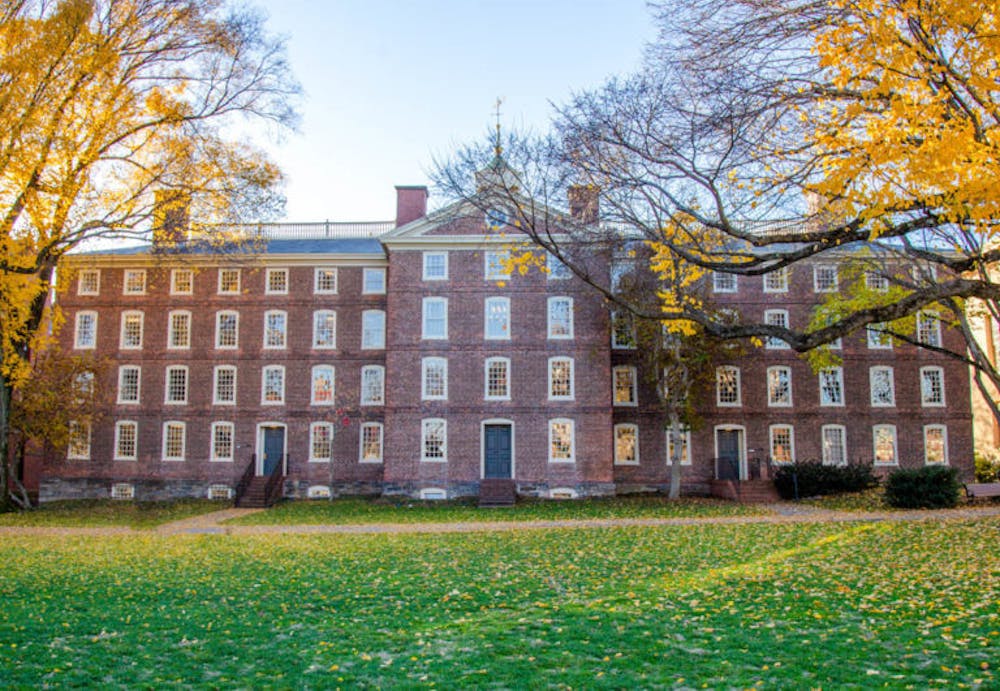Students spoke for and against University divestment from companies allegedly contributing to human rights abuses in Palestine at a public meeting of the Advisory Committee on Corporate Responsibility in Investment Policies yesterday.
The meeting came as ACCRIP continues to solicit information about the University’s investment in companies that potentially cause social harm.
At the meeting, Professor of Medical Science Chi-Ming Hai, chair of ACCRIP, said that before the committee begins to examine specific companies for divestment, “We ought to look at whether the Israeli occupation of the Palestinian territory qualifies as ‘significant social harm.’” In order to recommend divestment, the committee must find that a company is contributing to social harm, which its charter defines as “the harmful impact that the activities of a company or corporation have on consumers, employees, or other persons or on the human or natural environment.”
In response to a request from Hai, members of student group Brown Divest showed slides detailing information about Israeli detainment of Palestinians and arguing that Israeli occupation of Palestinian territory violates international laws. Brown Divest is demanding University divestment from “companies complicit in human rights abuses in Palestine,” according to the group’s Campaign Handbook.
After the presentation, Hai concluded that the committee needs to “understand a little bit more about daily life in Palestine and how Israeli control causes harm to the community.” He also asked Divest to send him more of their research on the topic.
Hai emphasized that even if ACCRIP votes to support Divest’s proposal to pull funds from companies like Boeing, Caterpillar and RE/MAX, “we don’t have to go along with everything on (Brown Divest’s) proposal.”
“If the committee feels that just one company necessitates divestment, I think we could make that recommendation,” Hai said.
Students against divestment action also brought their concerns to the attention of the committee.
“This conversation is very one-sided and has only allowed for one point of view to be shared,” said Micaela Raviv ’20, president of student organization Brown Students for Israel. “This is a conflict that is deep and personal to so many of us on both sides of the issue.”
Raviv said that though the divestment referendum passed in March, only 27 percent of the student body voted in favor of divestment. She hopes to “present to ACCRIP why Divest is harmful to our campus community, and why ACCRIP should not recommend Divest’s proposal.”
One student also encouraged ACCRIP to consider the perspective that divestment is a form of antisemitism, which Hai said was a concern he would explore in future meetings. “The question of antisemitism is absolutely a real issue that should be considered in Brown Divest and whether or not the committee goes forward with their actions,” said Jon Mallen ’22.
Brown Divest member Ben Bienstock ’20 argued that antisemitism is frequently used to discredit pro-Palestine activism.
“As a Jewish person, I stand in solidarity with everyone who wants to fight against antisemitism, but we have been nothing but respectful and open in the way that we have conducted ourselves,” Bienstock said. “This is a campaign about Brown’s investments and how they deal with companies that are conducting human rights abuses in Palestine, which is an entirely different topic.”
At the meeting, Hai also requested that a member of the new working group formed last week to consider options to replace ACCRIP attend the committee’s monthly meetings moving forward.
The idea for the working group was put forward and agreed upon at a community forum last week, which was held to discuss a now inoperative proposal to replace ACCRIP with an Advisory Committee on University Resources Management. The working group will consist of students, staff and faculty members and will work to create “a proposal for what is going to become of ACCRIP,” said James Morgan, chair of the Faculty Executive Committee, at the ACCRIP meeting. The FEC sponsored last week’s forum, along with the Undergraduate Council of Students and the Graduate Student Council.
Hai said that once the working group is fully formed, it will be useful to have a representative from the group at ACCRIP meetings in order to “have a little bit of continuity.”
“Nobody knows down the road whether issues from ACCRIP will become the issues for discussion” in ACCRIP’s replacement committee, Hai said.
Morgan announced that the FEC, GSC, UCS and the Staff Advisory Council will soon be soliciting interested members for the working group. He hopes that the working group will have a proposal for a new committee in time for ACCRIP to be replaced by the end of the academic year.





